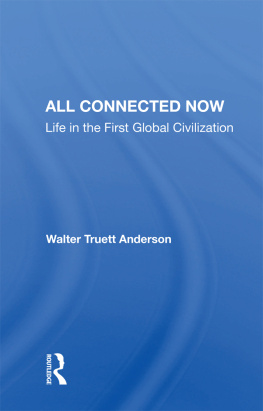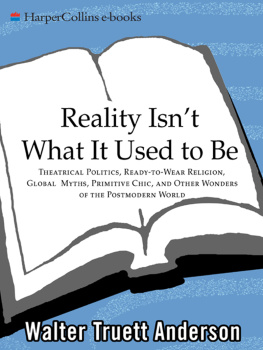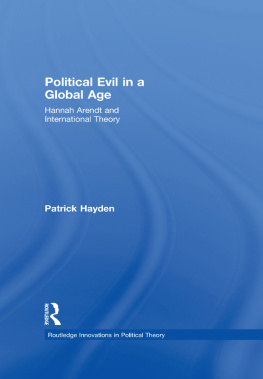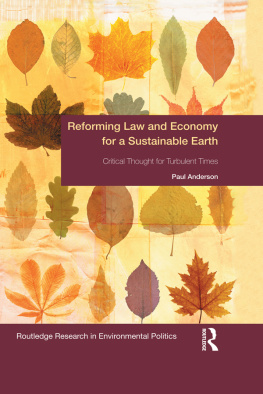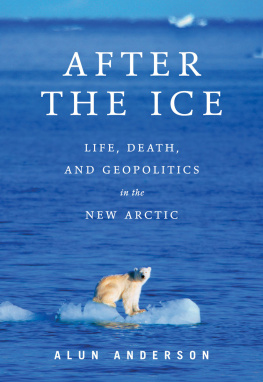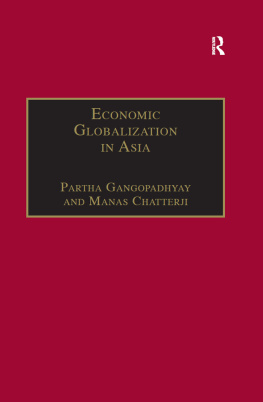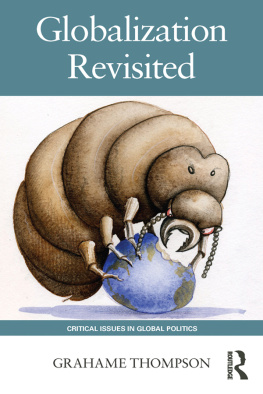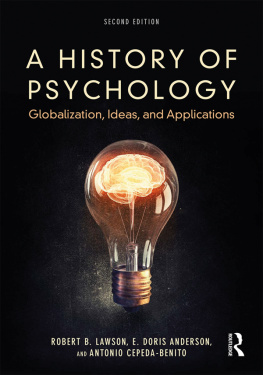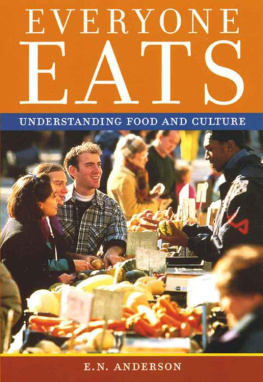ALL CONNECTED NOW
All Connected Now
Life in the First Global Civilization
Walter Truett Anderson
First published 2001 by Westview Press
Published 2018 by Routledge
52 Vanderbilt Avenue, New York, NY 10017
2 Park Square, Milton Park, Abingdon, Oxon OX14 4RN
Routledge is an imprint of the Taylor & Francis Group, an informa business
Copyright 2001 Taylor & Francis
All rights reserved. No part of this book may be reprinted or reproduced or utilised in any form or by any electronic, mechanical, or other means, now known or hereafter invented, including photocopying and recording, or in any information storage or retrieval system, without permission in writing from the publishers.
Notice:
Product or corporate names may be trademarks or registered trademarks, and are used only for identification and explanation without intent to infringe.
Text design by Brent Wilcox
Library of Congress Cataloging-in-Publication Data
Anderson, Walt, 1933
All connected now: life in the first global civilization / by Walter Truett Anderson.
p. cm.
Includes bibliographical references and index.
ISBN 0-8133-3937-5
1. Civilization, Modern1950 2. GlobalizationSocial aspects.
I. Title.
CB430.A53 2001
909.825dc21
2001045501
ISBN 13: 978-0-367-00726-3 (hbk)
For ALANA LEHUA ANDERSON, global citizen
I could fill up another book with the names of peoplepeople I have met with, learned from, argued with, and otherwise enjoyed being around in the years that I have been shaping the ideas that are expressed in this one. Short of that, I do want to mentionand acknowledge my appreciation formy colleagues on the Board of the World Academy of Art and Science, with whom I have been working in recent years: Harlan Cleveland, Arthur Cordell, John Cox, Jim Dator, Carl-Gran Hedn, Mohamed Kassas, Magda McHale, Horcio Menano, Graham T. T. Molitor, Nancy and Richard Palmer, Steven Rosell, Ana Maria Sandi, and Keith Vargo.
My special thanks also to my agent, Regula Noetzli, and to Holly Hodder of Westview, both of whom have contributed so much to this project.
It has become obvious over the past few years that a huge and many-sided evolutionary development is taking place in our time: I'm referring, of course, to globalization, the flow of forces that are converging to produce a world that is truly one world and is now beginning to be recognized as such by all the people who inhabit itthe first global civilization.
Let's pause for a minute over the word "globalization" itself. I like to observe the coming and going of the different terms"lifestyle," "cyberspace," "sustainability," "paradigm shift"that we use to try to make sense of what is happening in our lives. And in this connection I mark the increasing use of "globalization." It has galloped into the center of public dialogue, seemingly out of nowhere. I pick up the hefty Webster's New Twentieth Century Dictionary, which has served for many years as my authoritative guide to the English language, and find that it's not in there; not at all. In 1970, the year my dictionary was published, Noah Webster's intellectual descendants passed quietly from "global" ("1. spherical, globe-shaped. 2. involving the earth as a whole; worldwide") to "globard" ("a glowworm [obs.]") without finding it necessary to define any process that makes the earth more of a whole, that makes so many more things worldwide.
This process has now emerged as the dominant reality of life in the early twenty-first century. And many of us are not altogether sure we like it.
One of the effects of globalization is that it creates a new context, a public forum in which it becomes possible for people to argue about all manner of issues. In this wired agora, one of the most heated political issues is globalization itself. This is as it should be. If a process of such enormity is indeed taking place (and I argue in this book that it not only is taking place but is a far larger and more powerful process than most people suspect), then surely it is everybody's businesssomething that people have every right and reason to be concerned about. If anything, we should be arguing about it more than we do. I hope this book will serve to advance that argument, give us all better raw material out of which to shape our opinions and build the ideologies and agendas that will drive our behavior as global citizens. (Global citizenship, by the way, has moved from the status of ideal to that of reality; it is all the other kinds of citizenship whose practicality is now in question.)
What Is Globalization?
The trouble with most of the arguments about globalization is that different people have distinctly different ideas about what the term means. Most seem to think of globalization as mainly or exclusively an economic phenomenonan integration of markets that began fairly recently, is either controlled or caused by the actions of certain people and groups, and may be slowed down, halted, or even reversed; others see it as an enormous and multifaceted complex of connective processes that involve every aspect of life on the planet, have been unfolding over the entire course of human evolution, and for which nobody has either a hand on the steering wheel or a foot on the brakes. Stephen Toulmin catches the essence of this dichotomy in an essay entitled "The Ambiguities of Globalization," where he refers to globalization as being both "an historical fact and a political football."
It is economic globalization that dominates most of the media discussion and the content of widely read books such as Thomas Fried
Economic globalization is generally viewed as a relatively recent occurrence. Friedman, for example, leads off his book with a provocative preface declaring that "the world is ten years old." (The phrase is quoted from a Merrill Lynch newspaper ad saying the world was born when the Berlin Wall fell in 1989.) Other analyses similarly focus on recent events. There is a certain logic to this, since by many statistical measuresand economics is notoriously dependent on statisticsintegration of the global economy did not grow steadily through the twentieth century; in the mid-1990s it was about where it had been in 1913. Butin view of the way this process has speeded up and leaped into the foreground of public consciousness over the past couple of decadesit's quite understandable that many people see global economic integration as something new.
Other characteristic assumptions that drive much of the debate about economic globalization are (1) that it is to some extent reversible (or at least containable) and (2) that it is (or can be) centrally directed. This is implicit in the title of Rodrik's book. The idea that globalization has "gone too far" and that some sort of political action can either turn it around or slow it down can usefully be applied to only a very restricted meaning of the word.
For a more expansive definition of globalization, you need to turn to studies such as the book titled simply Globalization, by the Australian sociologist Malcolm Waters. His definition of "globalization" is: "A social process in which the constraints of geography on social and cultural arrangements recede and in which people become increasingly aware that they are receding."sociological theorists such as Max Weber and Talcott Parsons, Waters discusses this in terms of three distinct "arenas of social life"the economy, the polity, and the culturewithout assigning primacy to any of them. In fact his analysis seems to focus most heavily on culture, because of the obvious ability of symbols of various kindsmemes, in the current jargonto move about the world with lightning speed. He also places his discussion in a much more spacious time frame:

